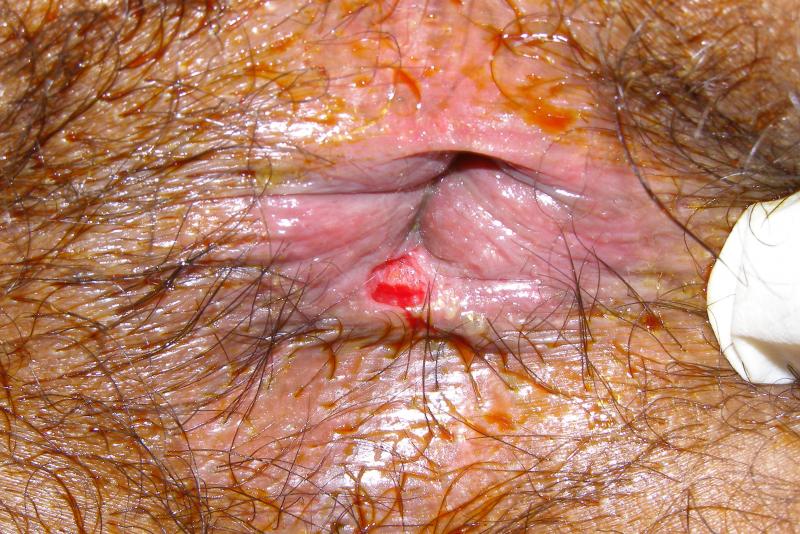1)What is an anal fissure?
An anal fissure is a small tear or cut in the skin that lines the anus. Fissures typically cause severe pain and often bleed. . The pain and bleeding associated with this ailment often lead to patients avoiding defecation and thereby allowing the stools to harden. The hardened stools results in further tearing of the anoderm during defecation, and thereby setting a vicious cycle.
2)what are the symptoms of an anal fissure?
The typical symptoms of an anal fissure are pain during or after defecation and bleeding. Patients may try to avoid defecation because of the pain.
3)What causes an anal fissure?
Trauma: anything that can cut or irritate the inner lining of the anus can cause a fissure. A hard, dry bowel movement is typically responsible for a fissure. In females, the ailment is usually triggered during pregnancy and following the childbirth, where precipitated labor can cause it.
4)How can a fissure be treated?
Often treating one’s constipation or diarrhea can cure a fissure. An acute fissure is typically managed with non-operative treatments but if pain is too much it need operative intervention
Treatment of anal fissure :-
• Warm water sitz bath (sitting in a tub containing warm water).
• A suitable dose of analgesic consumed half an hour before going for defecation gives a good amount of relief in post defecation pain.
• Plenty of oral fluids help in keeping the stools soft. High-fiber-diet like green leafy vegetables and fibrous fruits plus bulk-forming agents such as Isaphgula, gum karaya or osmotic laxatives like lactulose go lead to a smooth and swift act of defecation.
• Maintain a regular bowel habit.
Application of local anesthetic cream or gel. Ointments containing opiates, xylocain, amethocain, and cinchocain.
5)What can be done if a fissure doesn't heal?
A fissure that fails to respond to treatment should be re-examined and surgery is advised..
6)What does surgery involve?
Surgery is a highly effective treatment for a fissure and recurrence rates after surgery are low. LASER sphincterotomy ,is surgery of choice.
7)How long does the healing process take after surgery?
Complete healing occurs in a few weeks, although pain often disappears after a few days.

